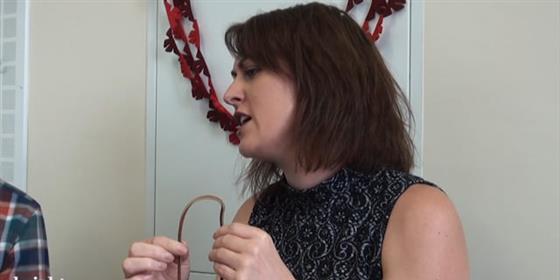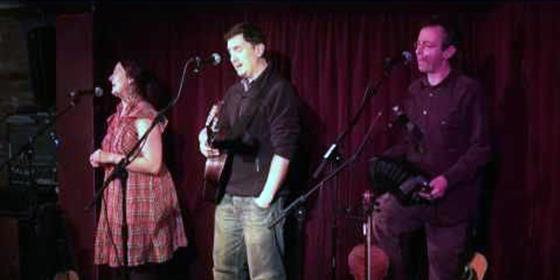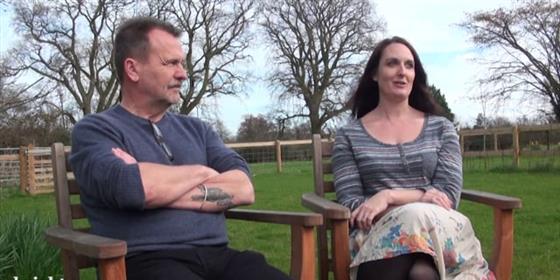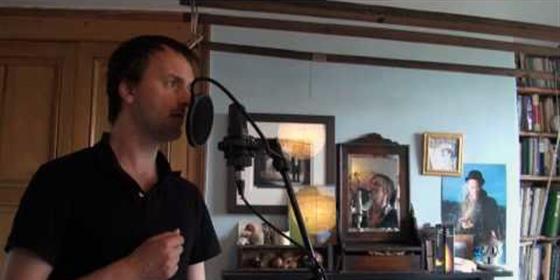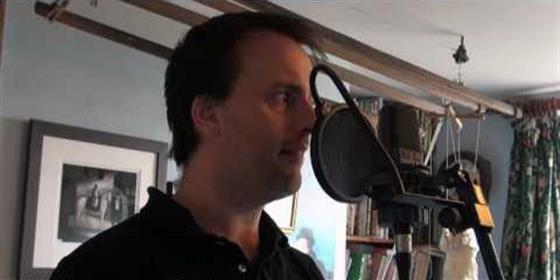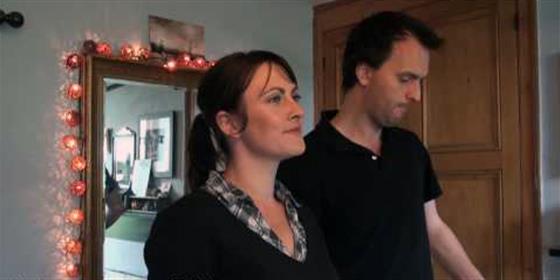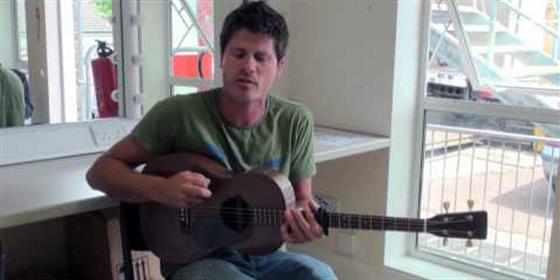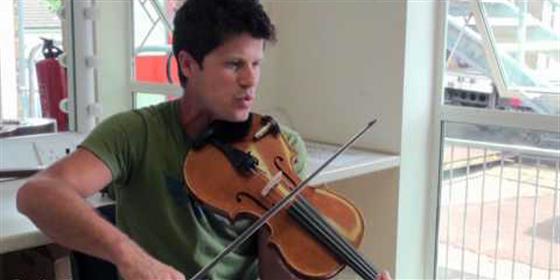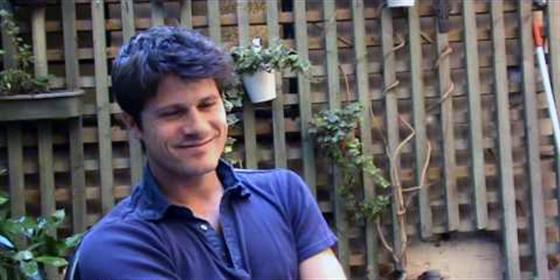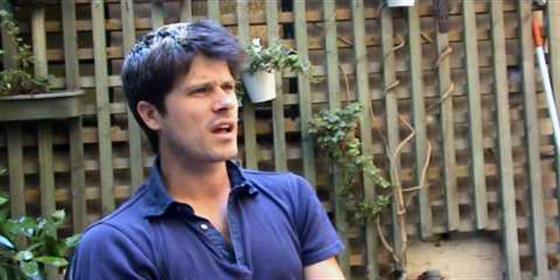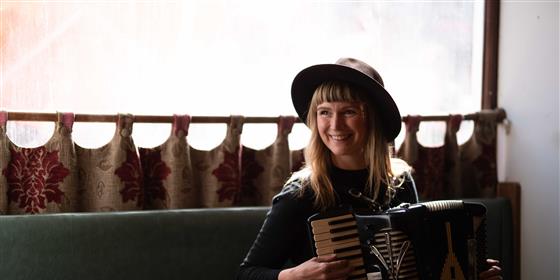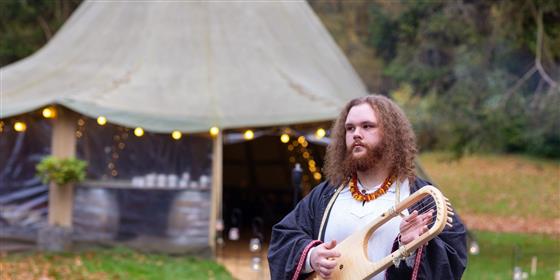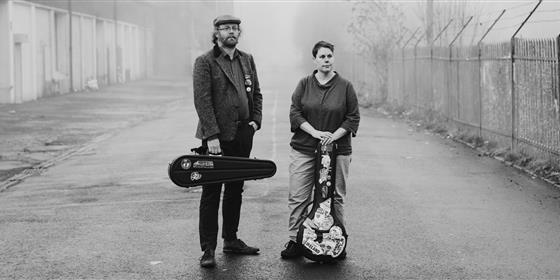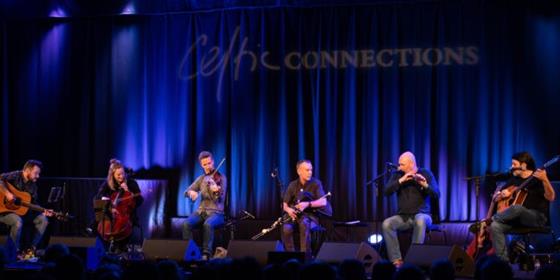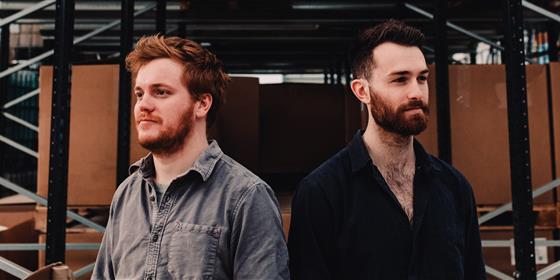Posted by Rebekah Foard 22 August 2013
The recent launch of the Full English archive has seen some of the most important collections of English folk tunes, songs, dances and customs digitised and now freely available online. Leafing through books and turning to old recordings to unearth the best kept secrets of traditional music will now be enhanced by the simple click of a mouse. But the project doesn’t stop there.
Bright Young Folk talks to Fay Hield, Seth Lakeman and Nancy Kerr about the archive, the tour and their responses to such a remarkable development in our cultural heritage.
There has been a lot of buzz surrounding the lead up to the launch of the ’Full English.’ Can you tell us again what it’s all about?
Seth Lakeman: The Full English is a project highlighting the extensive archive of folk song that has been transferred and preserved as a digital resource. It allows people easy access to our folk history.
What was the driving force behind the project and how was it made possible?
Seth Lakeman: The website itself has been the driving force behind the project. It was made readily available to us prior to its launch for us to draw material from. It is this online format that we hope to highlight to the general public.
How will your involvement in the Full English affect your future repertoire as a solo artist?
Seth Lakeman: The Full English has already had a positive effect on my repertoire, as I have recorded the Broadside ballad ’Portrait of my Wife’ on my new record. The extent of material available on the site is staggering and a valuable resource for folk songs, which I will undoubtably use again in my work.
What benefits will the project have on the wider community?
Fay Hield: Having all of these resources freely available to the public means that literally anyone can access them. However, the important thing about this project is that EFDSS are going to great effort to help people access the website. It is not enough to just put the archive up there, they are also showing people how to use it.
This has happened through the performance commission we have been involved in, where people can see what we’ve done with the materials and have hopefully gained some inspiration for their own performance. There has also been extensive educational work with schools and community groups to introduce new audiences to these materials. The collections have relevance for social historians, local studies, literature and language as well as students of folk song, so they really have got a lot of value for a lot of people.
What do you think the effect of the digitalisation of such old collections will have on the folk scene today?
Nancy Kerr: It will colour singers’ repertoires for generations to come. The amount of music and information is amazing, but it’s the individual richness of each song that gives a singer the opportunity to fall in love with perhaps just one story or one singer. That’s what I’ve done, and I know I’m gaining things from the site that will stay in my folk repertoire forever.
What are your favourite discoveries from the archive so far?
Fay Hield: There are some real gems of songs to discover. ’Never Cut your Toenails on a Sunday’ is a particular favourite - you’ll have to look it up to discover why not for yourselves!
The other main thing I’ve found unexpectedly is how close working with these materials brings you to the collectors. I have learnt a lot about the collectors’ motivations, the relationships between collectors and singers, and people’s private thoughts through the correspondence and diary entries also found in the archive. The personalised nature of looking at someone’s scrap book rather than the cleaned up edited version is so illuminating it is hard to describe.
Seth Lakeman: I was drawn to the collection of Broadsides by Frank Kidson, their lyrical content brought a fresh direction to my song writing process.
Nancy Kerr: I’ve learnt a variant of ’The Seeds of Love’ from Lucy Broadwood’s collection, which is just beautiful. It is so affecting to find something new and rare about a song that is already iconic in its more popular version. I also discovered a set of words from Broadwood’s Sussex collection called ’The Servant Man’, which I’ve set to a tune and now sing with Fay Hield in the Full English show.
Now that you can browse the collections side by side, does that tell us anything about the preferences of the different collectors?
Fay Hield: Absolutely - and the differing neatness of handwriting is also blindingly obvious. Kidson’s collection for example is largely made up of Broadside ballads while Alfred Williams did not collect tunes. You can also see different periods in each collector’s activity. Sharp’s trip to America sits here next to his English tours, really highlighting this as a life’s work rather than a series of disparate publications.
Nancy Kerr: Yes, and also their personalities, agendas and styles of collecting, some of which we had a flavour of already. But artefacts like field notes, photos and letters illuminate much more.
An all-star band has been put together for The Full English tour in October-November and an album is on the way. How did you decide on which pieces you would use from such a wealth of material?
Fay Hield: This was tricky. I sent all the singers a number of things I had trawled through and thought interesting or suitable in some way. It became clear though that it is very difficult to be given a song by someone else, and in every case the singers delved into the collections themselves and came back with something I’d missed, but which spoke to them.
There really is such a wealth of material it was a case of sticking in a pin and seeing what came out - to do a systematic appraisal of every item would be more than a life’s work. This does go to show that a haphazard approach can be fruitful though, so I’d encourage everyone to go to the website, stick in a random search term - socks, or blueberries for example - and see what you can make from what you’ve got.
The Full English archive is now in use and the first gig was played in London at Cecil Sharp House, what has the response been since the launch?
Nancy Kerr: I’ve had a lot of people enquire and enthuse about the project as I travel around performing. I think this, and other developments such as the release of Lomax’s material, point to a desire in us to get involved with musical heritage in a tactile and human way.
Seth Lakeman, Martin Simpson, Fay Hield, Nancy Kerr, Sam Sweeney, Rob Habron and Ben Nicholls will celebrate and promote the archive and its wealth of findings across England this autumn. There is also a related album out at the same time. The tour will take these fine musicians and their exciting new discoveries to:
19th October 2013 - The Met, Bury
24th October 2013 - Sage, Gateshead
25th October 2013 - The Atkinson, Southport
26th October 2013 - Darwin Suite, Derby
27th October 2013 - Colston Hall, Bristol
28th October 2013 - Arts Centre, Colchester
29th October 2013 - Firth Hall, Sheffield
30th October 2013 - The Stables, Milton Keynes
31st October 2013 - Cecil Sharp House, London
1st November 2013 - MAC, Birmingham
2nd November 2013 - Drill Hall, Lincoln
